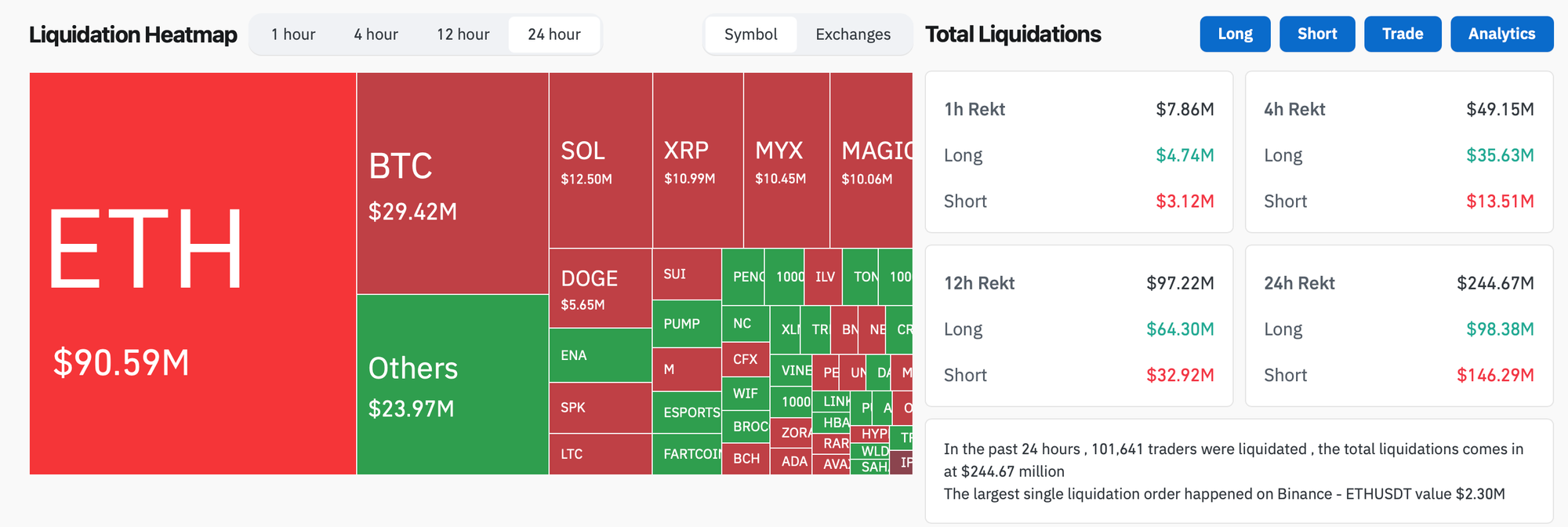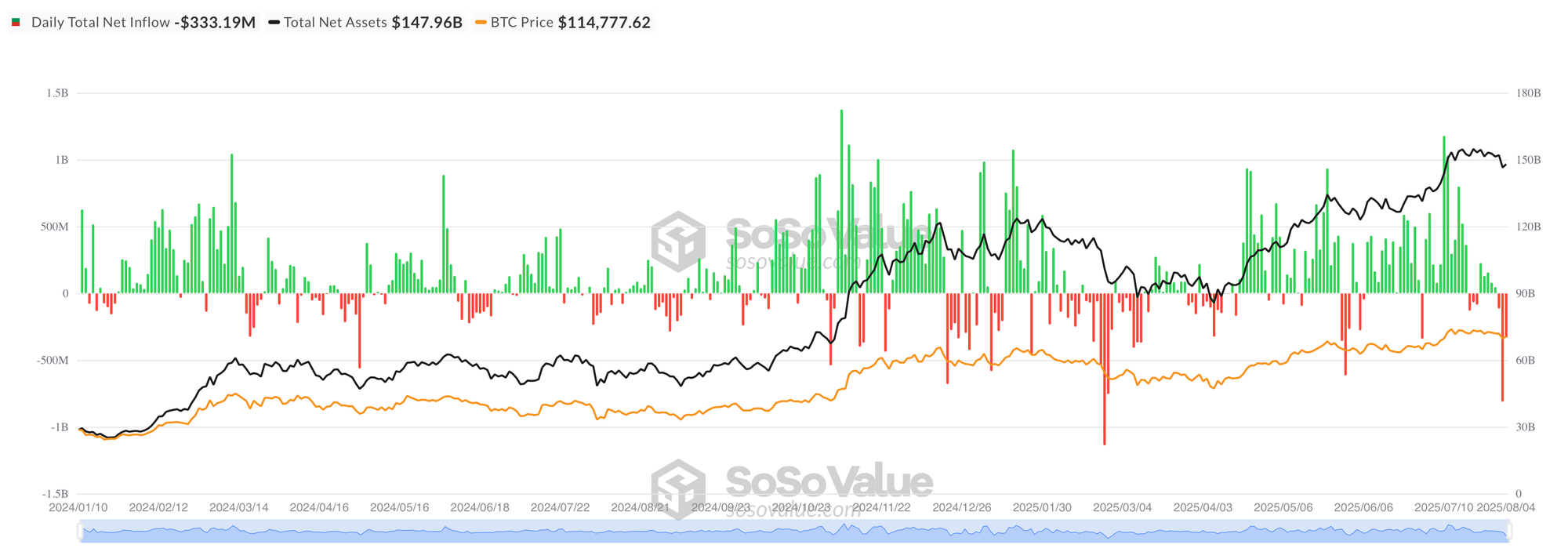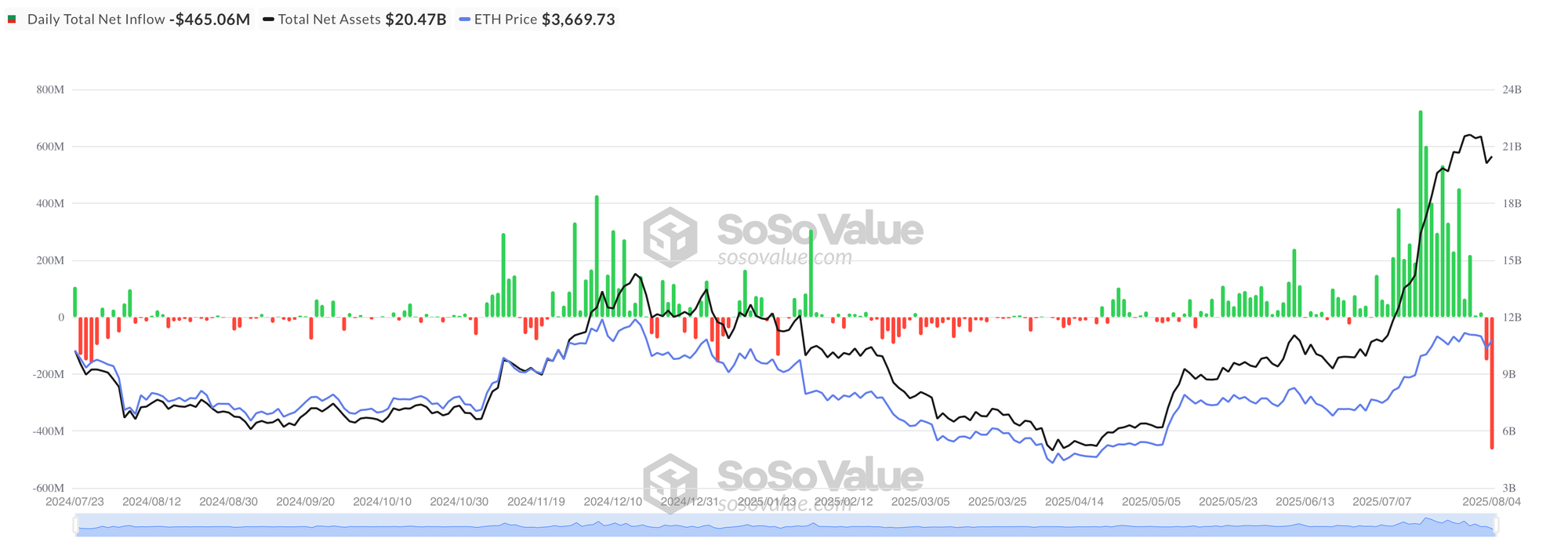Global markets rallied yesterday, with the Dow Jones surging 585 points (+1.34%) to 44,173, S&P 500 gaining 92 points (+1.47%) to 6,329, and Nasdaq jumping 2.10% to 2,212, as investors brushed aside Friday's weak jobs data and focused on growing expectations of Federal Reserve rate cuts, with markets now pricing in an 85% chance of a September cut. The rally was broad-based with 10 of 11 S&P sectors advancing, led by technology and communication services as a "buy the dip" mentality emerged, while bond yields fell with the 10-year Treasury dropping 3 basis points to 4.19% ahead of this week's $125 billion in Treasury auctions. European markets joined the rebound with the EuroStoxx 600 rising 0.90% and Germany's DAX gaining 1.42%, though Switzerland slipped 0.15% after facing Trump's 39% tariff rate, while UK banks surged with Lloyds jumping 9% after a favorable Supreme Court ruling on motor finance commissions, and the EU confirmed it would suspend retaliatory tariffs for six months as both sides finalize their trade agreement.
The global market cap is up 0.85% over the past 24 hours to $3.75tn. The 24h volume increased 28% to $137.5bn.
- In the past 24 hours, crypto liquidations increased by 71.47% and totaled $244.67m, with 59.8% of them short positions.

- According to data from SoSo Value, Bitcoin ETFs recorded significant outflows of $333.19 million on August 4, 2025, marking the second-largest daily outflow following the record $812.25 million redemption on August 1, as institutional investors continued to reduce risk exposure amid ongoing market volatility. BlackRock's IBIT dominated outflows with $292.21 million in redemptions, followed by Fidelity's FBTC at $40.06 million and smaller outflows from Grayscale's GBTC and Valkyrie's BRRR, while Bitwise's BITB bucked the trend with $18.74 million in inflows as the only fund to attract capital. Trading volume moderated to $2.50 billion compared to the $6.13 billion during the initial August 1 selloff, while total net assets rose slightly to $147.96 billion and cumulative inflows since launch declined to $53.85 billion, reflecting continued institutional caution.

- According to data from SoSo Value, Ethereum ETFs recorded their largest outflows to date, of $465.06 million on August 4, 2025, more than tripling the previous recent high of $152.26 million seen on August 1, as institutional investors continued to reduce exposure to digital assets amid market uncertainty. BlackRock's ETHA experienced unprecedented outflows of $374.97 million, representing a dramatic shift for the typically dominant fund, while Fidelity's FETH posted $55.11 million in redemptions and Grayscale's ETH recorded $28.00 million in outflows, with all other major funds recording zero activity except for Grayscale's ETHE which had a smaller $6.98 million outflow. Trading volume reached $1.92 billion as total net assets fell to $20.47 billion and cumulative inflows since launch declined to $9.02 billion, marking a significant retreat from the peak momentum seen in late July when funds attracted over $450 million in single-day inflows, underscoring how quickly institutional sentiment can reverse during periods of broader crypto market stress.

- Decentralized exchange Hyperliquid reimbursed nearly $2 million to traders affected by a 37-minute API outage caused by a traffic spike on July 29, with the voluntary compensation praised by users since the platform had no legal obligation to provide refunds, potentially boosting confidence in decentralized trading platforms as Hyperliquid has grown to become the world's seventh-largest derivatives exchange.
- Solana-based memecoin platform Pump.fun saw its revenue drastically decline to $24.96 million in July, an 80% drop from its January peak.
- Crypto-native insurance provider Nexus Mutual reimbursed about $250,000 to users affected by July's $3.5 million Arcadia Finance hack on Base blockchain.
- Seychelles-based cryptocurrency exchange BigONE suffered a $27 million hack on July 16, 2025, through a sophisticated supply chain attack that used social engineering to compromise a key developer and deploy malicious code to bypass internal accounting systems, draining hot wallets of Bitcoin, Ethereum, and other digital assets without exposing private keys, with the exchange covering all user losses from its insurance reserves.
- Solana Mobile began shipping its second-generation Seeker smartphone to over 50 countries on Monday, with the crypto-focused device featuring a built-in hardware wallet, decentralized app store, and seed vault security generating over 150,000 pre-orders at $450-500 each and expected to earn at least $67.5 million in revenue, vastly outperforming the first-generation Saga which sold only 20,000 units.
- Sergey Ivancheglo, founder of NXT and Iota, attempted to take over the Monero network through his Qubic mining pool using merged mining across multiple blockchains, reaching 2.6 GH/s hashrate before DDoS attacks reduced it to 0.8 GH/s and forced two-thirds of miners to disconnect. Ivancheglo accused Monero mining software developer Sergei Chernykh of orchestrating the defensive DDoS attack, which he claimed was low-cost and likely executed by those controlling a Monero-mining botnet, though Chernykh denied the allegations in a Reddit post. The incident has sparked community debates about ethical defenses in decentralized networks while highlighting the vulnerabilities of smaller proof-of-work blockchains, with Monero developers deploying real-time monitoring tools.
- US Representative Dina Titus has requested the CFTC to investigate Brian Quintenz, Donald Trump's nominee to lead the agency, due to his ties to Kalshi, prompting concerns over potential conflicts of interest in his potential leadership role.

